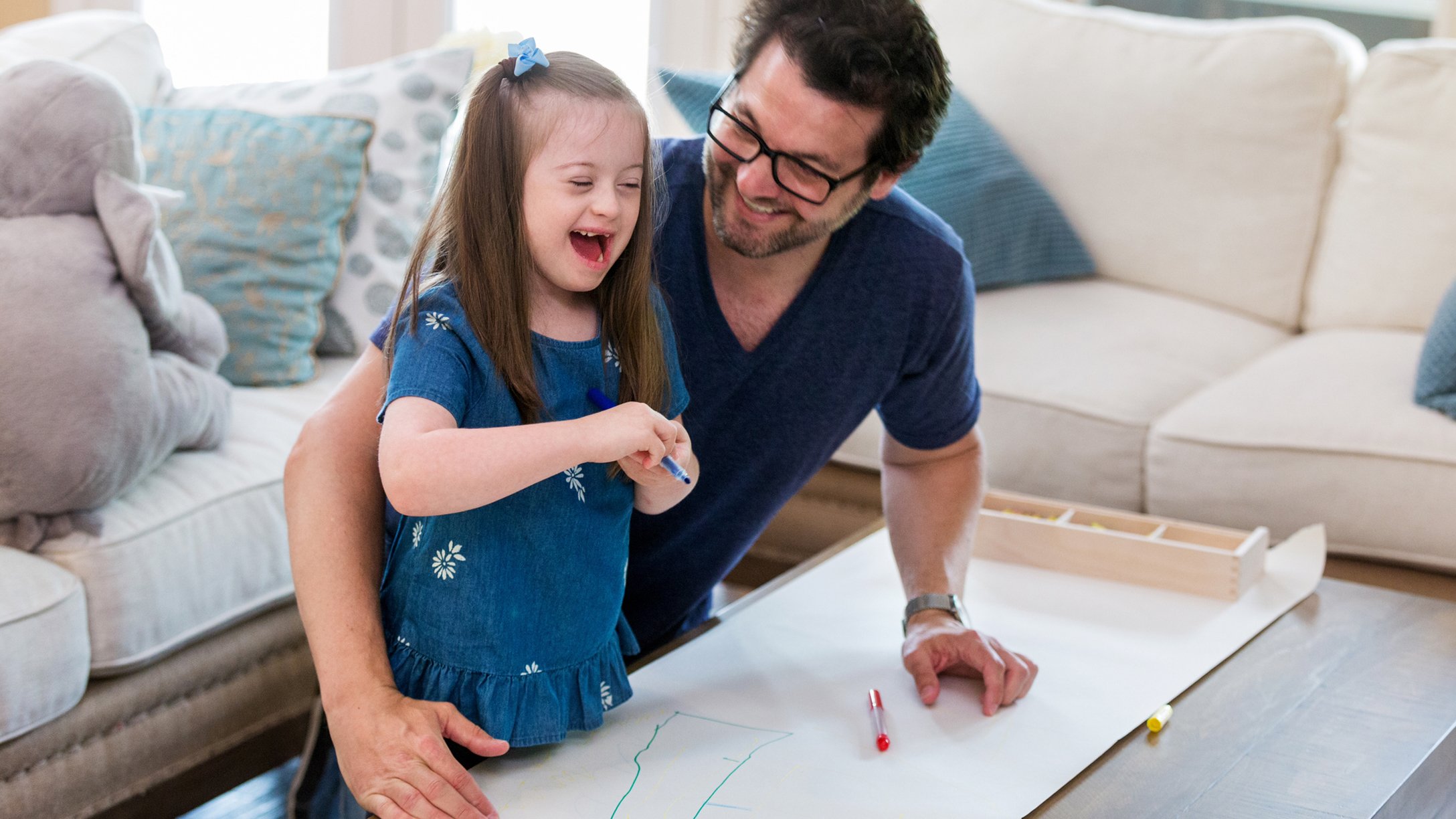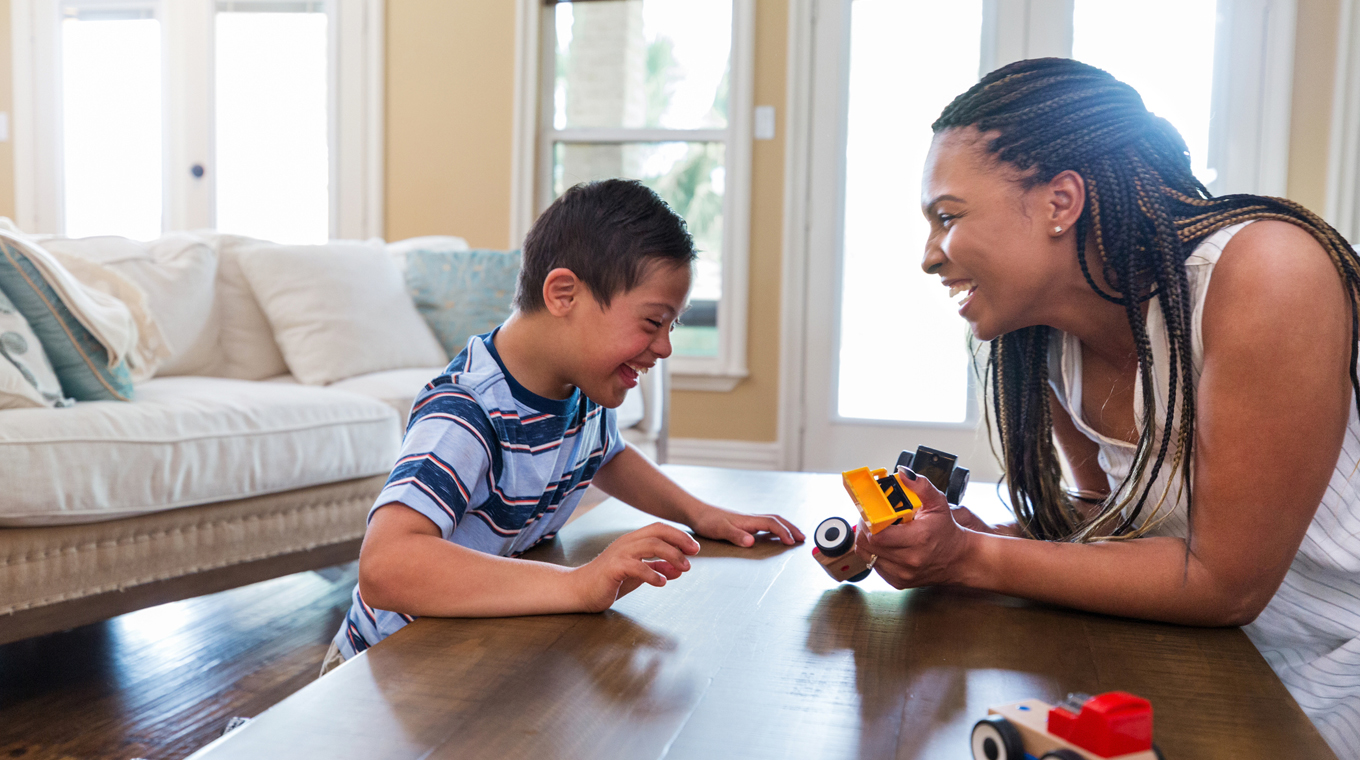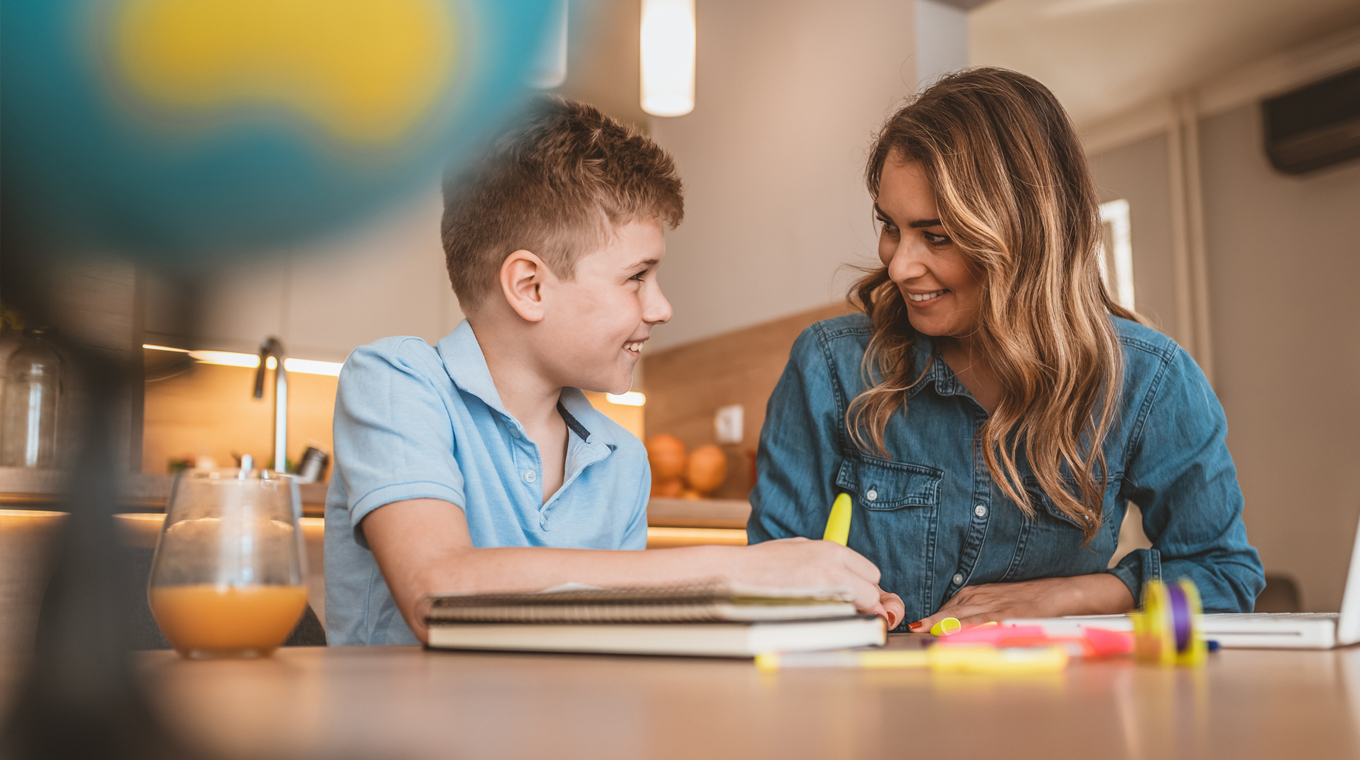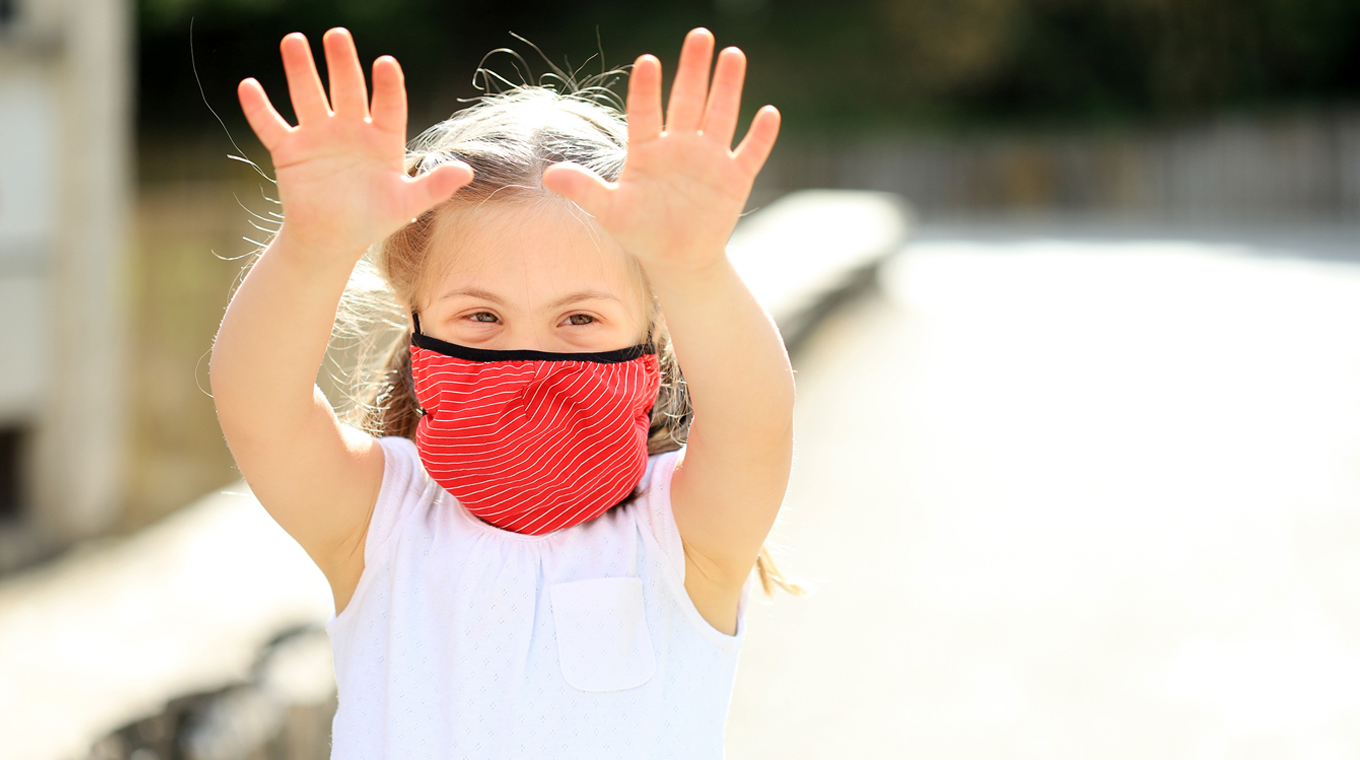
In this article
Parents of children with special needs spend quite a bit of time searching for appropriate resources for their child’s well-being. Children’s needs shift with each passing year, and families have to adjust and pivot regularly as the child matures.
Parenting a special needs child during a pandemic, however, brings about an entirely new set of questions and concerns, especially for kids who are immunocompromised. Enforcing social distancing and keeping them safe as they venture out as schools reopen are other considerations. Here are some tips to help parents and caregivers of special needs children during the COVID-19 pandemic.
Parenting a child with special needs during COVID-19

Elizabeth Bobb says that parenting a special needs child even before coronavirus was isolating at times. “The hardest part of all of it is helping my daughter who has Down syndrome understand why we can’t go places and why we can’t see family and friends,” she told Mom.com.
Like countless parents these last few months, Elizabeth has been trying to keep her kids busy. “I have just tried to stay calm and provide fun activities for her that we can do at home to take her mind off going places,” the mom of two said.
In addition to staying busy, there are a few things parents of special needs kids can do to stay safe and healthy while navigating a COVID-19 world.
- Try to keep your child on a consistent schedule if that is what works best.
- Implement screen time limits if necessary.
- Consider incorporating new books or games into your child’s day.
- Make time to get outside, playing in nature. Even just regular daily walks can boost mood and improve your child’s mindset.
Parenting immunocompromised children during COVID-19
Parents of immunocompromised children or kids with complex medical issues may have an increased risk of illness stemming from COVID-19. The Centers for Disease Control and Prevention (CDC) offers guidance for parents of children with underlying conditions.
- Keep regularly schedule medical appointments.
- Make sure you have a 30-day supply of medications on-hand.
- Ensure your child is up-to-date on vaccinations and well-visit checks.
Resources for caregivers of kids with autism and other special needs during COVID-19

For families faced with the challenges of parenting a special needs child with autism during COVID-19, there are resources available. The National Autism Association has created a tool kit of resources to help families navigate these challenging times. With information ranging from practicing social distancing to learning how to help your child deal with disruptions in their routine, the site is an invaluable resource for parents and caregivers.
Families can also reach out to one of the Family to Family Health Information Centers (F2F) in their state. The F2F centers provide resources for caregivers of Children and Youth with Special Health Care Needs (CYSHCN) and can be found throughout the country.
Finally, the CDC has made available a variety of up-to-date information for K-12 Schools and Child Care Programs. These guidelines can keep parents of children with special needs informed as schools and special education programs begin the reopening process in the coming weeks.
As a parent of a child with special needs, staying in tune with your own well-being and health is also paramount. Your child will pick up on any stress or anxiety you may have. Making time for self-care is usually easier said than done, but it is so important, especially during these challenging times.
Special education concerns as schools are reopening

Parents whose children have autism or other special needs may be concerned about schools reopening. Whether going back to school on a regular or a hybrid schedule, keeping their child safe is a top priority. Maintaining social distancing for some children is difficult, for others, wearing a mask all day can pose challenges.
Lyn D. works in Applied Behavior Analysis (ABA) for a public school with students with the highest levels of Autism Spectrum Disorder (ASD). These students, for multiple reasons, cannot be in mainstream classrooms. “My advice for parents of any kids, but especially those with special needs, is to get them used to a mask. Wear them all the time; in the house, taking walks, going for a ride in the car, more than just going out in public,” she told Mom.com.
She suggests treating the mask as an essential article of clothing. A kid-friendly mask might be a good option to help encourage a child to wear it. “A favorite character, a sports team, or even Bedazzle it, or incorporate a mask for every day of the week,” the mom of three advised.
Tips for keeping your child safe at school
The CDC has guidelines in place for staying safe at school and special considerations for schools reopening during COVID-19. In addition to wearing cloth face coverings, the CDC recommends:
- Ensuring that everyone from staff, teachers, students, and parents are aware of the importance of staying home if they’re sick.
- Discuss with your child the reasons and rules for social distancing.
- Send your child off to school with proper supplies for slowing the spread of COVID-19. Check with your child’s teacher to see what’s allowed, and then prepare to pack their backpack with hand sanitizer, disposable face masks, and disinfecting wipes if they’re able to use them.
- Be prepared to provide art supplies from home that will belong to your child only, rather than having to share with the entire class. Schools are being encouraged to limit or eliminate shared supplies in classrooms.
- Know the meal options at your child’s school. Some school cafeterias may be closed or offer limited items. But experts say bringing a lunch from home is safest.







